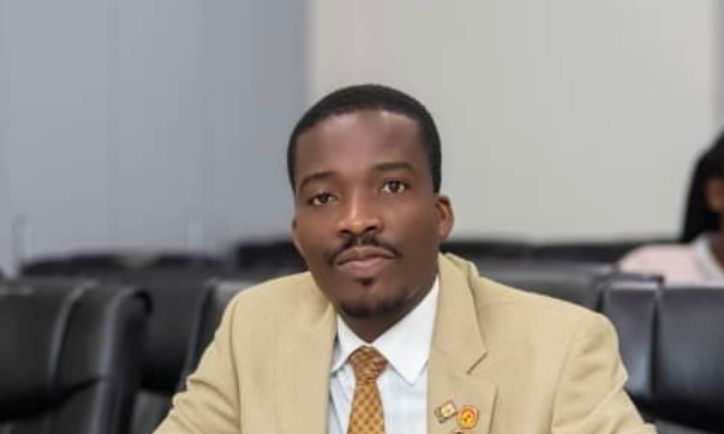In the wake of several epidemic outbreaks, such as the Cholera and Meningitis that have wreaked havoc in some parts of Ghana, the call to establish a dedicated fund for Public Health Emergency Funding (PHEF) has been incessant.
While the calls are in the right direction, another key area that needs attention is how health arms are strengthened to collaborate in epidemic preparedness and response. The health arms include the Ghana Health Service (GHS), Public Health Workers, Laboratory Scientists, Pharmacists, Medics, Frontliners, and others.
It is in this vein that Dr. Solomon D.Y. Kwashie, a Medical Laboratory Scientist, in an exclusive interview with Freelance Journalist Emelia Naa Ayeley Aryee, has opened up on the strides made by the agencies responsible for economic preparedness, the lapses, challenges, and possible solutions.
State of Ghana’s epidemic preparedness within health arms
According to Doctor Kwashie, Ghana has a good epidemic preparedness system mostly coordinated by the GHS, which ensures that the public health division is equipped with the right human resources and infrastructure, including Public Health Laboratory Network for epidemic response.
He said epidemics are mostly handled by the public health laboratory systems with the National Public Health and Reference Laboratory (NPHRL) playing a central coordination role, adding that after several years of neglect, it took the COVID-19 pandemic to make the role of NPHRL gain a lot of attention.
“You will realize that the Research laboratories were more equipped for pandemic handling in the Covid-19 era. This resulted from inadequate attention to the Ministry of Health and the Ghana Health Service Laboratory systems.”
“The story has now changed as much attention is currently being paid to the NPHRL and its zonal public health laboratories. There is the need to support the South-Eastern area of the Country with additional public health laboratories,” Dr. Kwashie intimated.
How health arms work together
He disclosed that within the ecosystem, there a significant collaboration between players in human, animal and environmental health in public health emergencies. There is also an inter-agency committee at the policy level that ensures that diseases are reported and investigated timely.
To him, this collaboration was much evident in the COVID-19 era where all laboratory systems were activated using the one health approach to fight the pandemic.
The Ghana Field Epidemiology Laboratory Program, he said, trains professionals based on the One Health team approach. These professionals are distributed to various areas of the country where they provide valuable support in outbreak investigation and surveillance.
Dr. Kwashie revealed that the Ghana Health Service has a national management plan in place, which is based on the One Health approach.
These strategies and plan demonstrate Ghana’s commitment to managing epidemics and improving public health.
“As part of our national management plan, there is the National Infection Prevention and Control Strategy, which aims to prevent, reduce, and control Healthcare-Associated Infections (HAIs) and Antimicrobial Resistance (AMR). This strategy is part of the government’s efforts to strengthen the health system and improve patient safety.”
“Additionally, Ghana has an Integrated Disease Surveillance and Response system, which outlines procedures for responding to outbreaks and other public health problems. This system includes setting up entities to manage responses, holding regular meetings, and preparing district epidemic response plans,” he explained.
Challenges
Despite these laudable milestones, the health system has undoubtedly been fraught with a number of challenges, and this boils down to a lack of funding.
Dr. Kwashie noted that funding is one basic thing that has hindered how effective the Public Health Laboratory Network and other health arms and agencies responded to epidemics.
He thus rated Ghana’s epidemic preparedness at 7 on a scale of 10, while response garnered 6.
Another challenge, he noted, is the inadequate health infrastructure in hard-to-reach areas, which prevents people in these areas from reporting disease outbreaks on time.
He added that the inadequate interface between clinical laboratories and public health laboratories is a significant challenge in Ghana’s laboratory systems.
“For example, clinical laboratories may identify infectious diseases, but the information may not be communicated promptly to public health laboratories, hindering timely outbreak response. Again, different laboratories may use varying testing protocols and reporting formats, making it difficult to compare and consolidate data,” Dr. Kwashie explained.
He noted that there is also a challenge of inadequate coordination between the public health facilities and private health facilities in Ghana in disease reporting.
A dedicated fund
All said and done, Dr. Kwashie stressed that a dedicated fund for epidemic preparedness is the way to go. He said one of the advocacies surrounding the dedicated fund, which aims at the conversion of the COVID-19 levy into a Public Health Emergency Levy is appropriate.
This, he said, will serve as seed money and provide a constant funding source for our emergency preparedness.
“There must be a fund which must be managed using the inter-agency approach. There must be stakeholders from the one health team to handle this fund,” he suggested.
He added that the fund would make it possible to build the capacity of people at the local level to identify and report suspect health conditions to authorities for investigation.
“In Ghana today, there are many private organizations, including the media, Civil Service Organizations who are contributing to healthcare. The public health systems must be re-engineered to leverage on the strengths of these organizations and partner with them in areas such as risk communication and public health education programs, and this all involves money which the fund can cater for,” Dr. Kwashie said.
There is also the need to build a strong health system with significant infrastructure across the country. There should be empowerment of the communities in health decision making, there is the need for ensuring strong Public-private partnerships for health.
“All these would be meaningful with the coming into being of the dedicated fund. To ensure that health arms are strengthened to collaborate effectively toward epidemic preparedness and response, there must be adequate funding and capacity building toward the future,” Dr. Kwashie emphasized.


